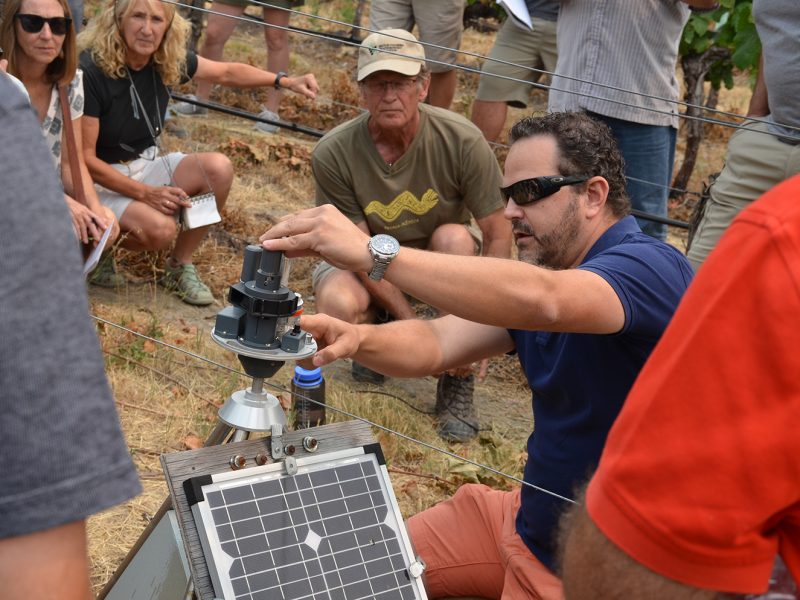The BC Decision Aid System, one of the best resources available for providing time-sensitive information on managing pests, is expanding to the Kootenays.
Five new provincially funded weather stations in the Creston area will collect and integrate data used to forecast insect population trends so orchardists can anticipate and respond to pest management issues.
An additional five stations funded by the Columbia Basin Trust, and enhanced with support from the Regional District of Central Kootenay (RDCK) will provide valuable climate data to beef, forage and grain producers and local governments.
The expansion is the result of a scientific climate modelling project Fields Forward Society of Creston undertook to assist local producers.
“The weather station project will both support the agriculture sector and inform response efforts to natural disaster events related to climate change,” Fields Forward says in a June 28 press release announcing the expansion. “Real-time data collected will be readily available to and utilized by local government agencies, farmers, the BC Wildfire Service, and other public agencies engaged in natural disaster response and mitigation efforts.”
BC DAS has been used in the Okanagan and Similkameen valleys to maximize the efficiency of pest-management practices and fruit production since 2018 and now counts more than 360 users.
The expansion is supported with $70,000 from the BC Ministry of Agriculture and Food, part of a three-year, $375,000 funding commitment for BC DAS, $103,900 from Columbia Basin Trust and $50,000 from the regional district.
Melissa Tesche, general manager of the Okanagan-Kootenay Sterile Insect Release Program, says BC DAS – which adapts technology developed in neighbouring Washington – makes the best science available to deal with pests on a farm property in a grower-friendly way.
Growers can log onto the system and request information on a specific pest or disease. The system uses historical data and current readings on temperature, moisture and other factors to determine when a pest or disease will be a problem, suggests a course of action to resolve the problem, and the best timing for the best results.
SIR uses the system to provide recommendations to growers when additional control measures are required.
Fourth-generation grower Kevin Day, co-owner of Day’s Century Growers in Kelowna, says BC DAS support’s his farm’s commitment to producing high-quality fruit and sustainable agriculture.
“It enables us to deal with the problems in a way that maintains balance between good bugs and bad bugs in the orchard, benefitting the ecosystem for all,” he says.
Similar benefits are envisioned in the Kootenays.
“Since Creston has so many microclimates, it will be helpful to predict what the weather will do in this valley,” says Freddy von Harling, manager of Piper Farms Ltd. “It will make it easier for us to make a harvest decision for hay or grain. It also will help with application of herbicides; we will not have to guess anymore what the wind and humidity will do throughout the day.”


 Wireworms require vigilance
Wireworms require vigilance